Trust is the basis of a solid relationship. It allows each half of the couple to feel safe and comfortable, as well as fosters healthy communication and boundaries. Without it, the relationship can quickly take a wrong turn, leading to insecurities, conflict, and anxiety.
Redditor Complex-Wing7114 experienced this firsthand. In the beginning, her relationship seemed nothing out of the ordinary. However, over time, her husband’s questions about where she was going, who she was meeting, and what they were doing turned into him checking her phone, researching friends, and trying to take over her bank accounts. Hit with a bad feeling, she decided it was time to leave and crafted a foolproof divorce plan in two weeks.
Without trust, a relationship can quickly take a wrong turn

Image credits: Liza Summer (not the actual photo)
Just like what happened to this woman, who even had to secretly plan a getaway from her husband

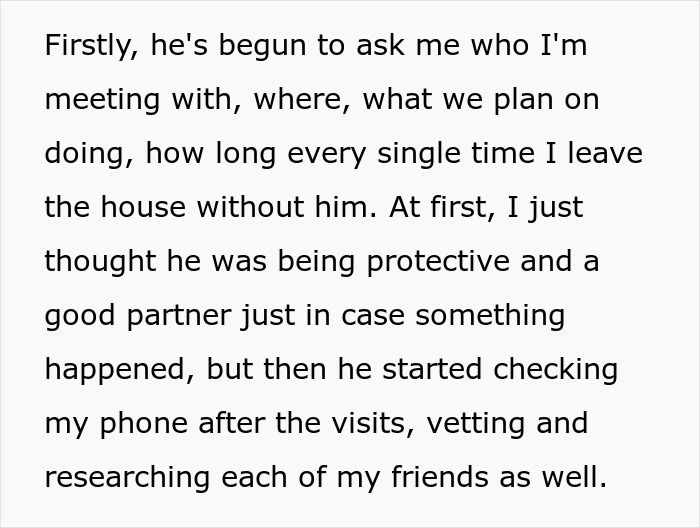

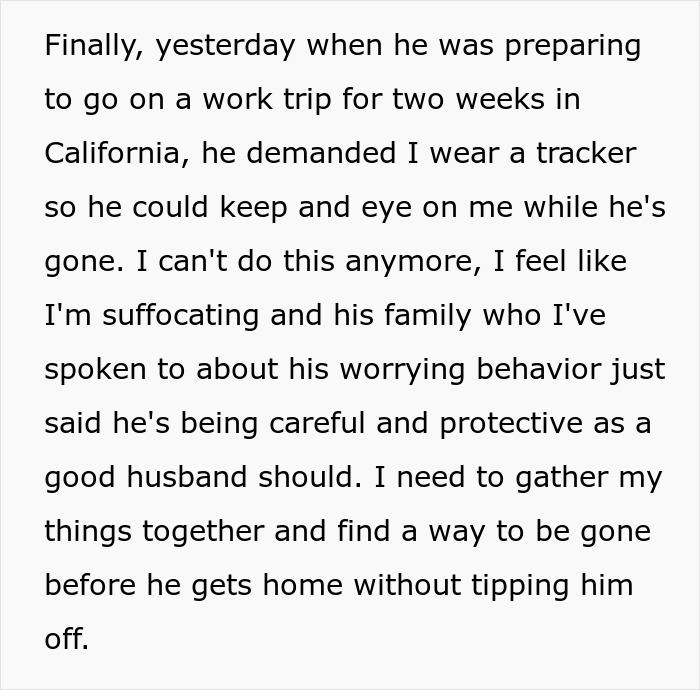


Image source: Complex-Wing7114
In the first update, she started documenting her process of leaving



Image credits: Jakub Zerdzicki (not the actual photo)



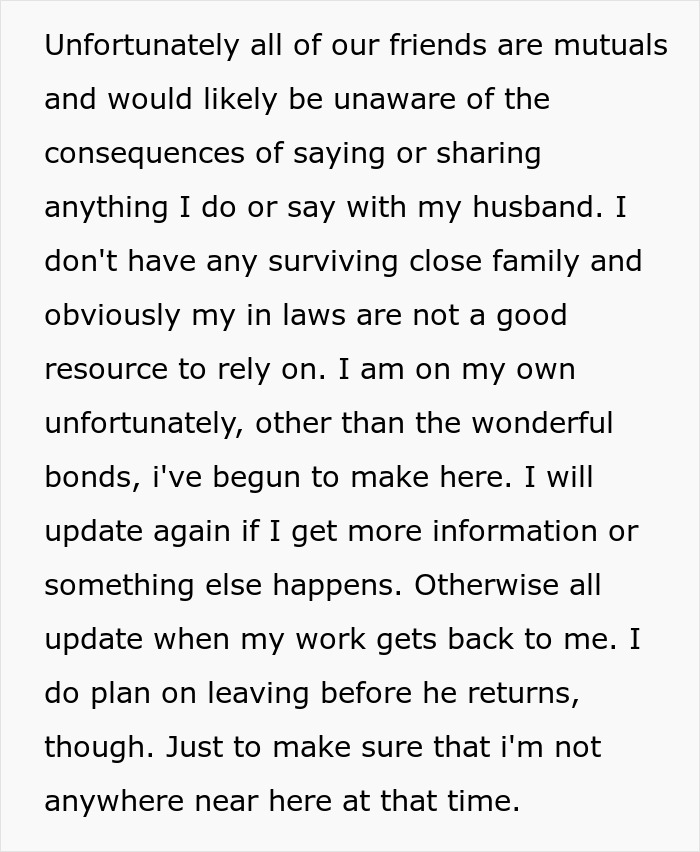
Image source: Complex-Wing7114
A bit later, she informed readers that she had gotten a transfer to a job across the country




Image credits: Kampus Production (not the actual photo)

Image source: Complex-Wing7114
After a week, she posted another update, saying that she was finally able to leave home


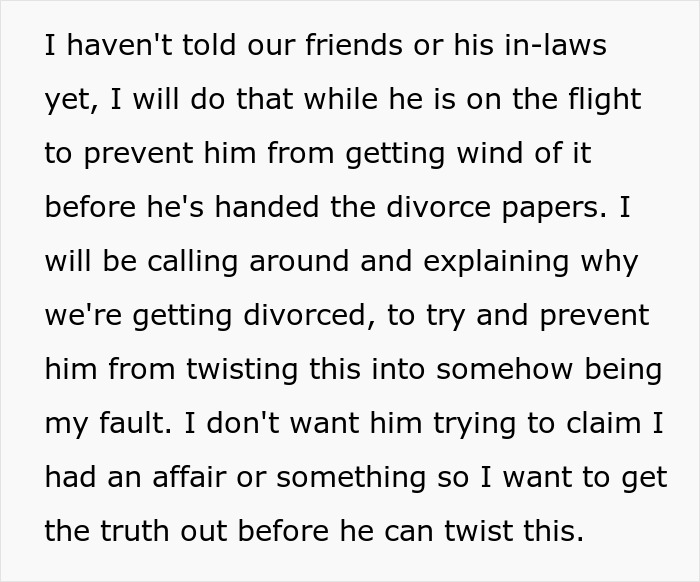

Image source: Anna Shvets (not the actual photo)

Image source: Complex-Wing7114
The husband was livid after receiving the divorce papers



Image source: Karolina Grabowska (not the actual photo)


Image source: Complex-Wing7114
Quite recently, the woman answered additional questions and posted a final update





Image credits: Tim Samuel (not the actual photo)


Image source: Complex-Wing7114
16% admit not trusting their partner, even if they’ve never been cheated on
16% admit not trusting their partner, even if they’ve never been cheated on. This number rises to 32% among those who experienced infidelity. More interestingly, nearly half of the respondents confessed to using modern technology to spy on their loved ones. The findings show that there’s a significant level of mistrust among couples, which has the potential to cause trouble in the future.
As evident in the data above, people who have experienced some type of betrayal, like unfaithfulness, may develop trust issues that harm future relationships. A 2017 study found that our ability to trust is influenced by genetic factors. On the other hand, distrust is primarily influenced by social factors.
Early childhood experiences play a big role in shaping individuals’ ability to trust the people around them. This means that trust issues can come from a number of sources, including parental conflicts. If children are accustomed to seeing trust problems within their families, they might fear that the same thing will happen to them when they grow up.
Experiencing social rejection in childhood can also contribute to this worry. Various negative events in younger years are also likely to result in trust issues. Experts even propose that a person’s attachment style (how we bond/connect with people) plays a role in how they respond to trust in relationships. Those with a secure attachment style may be more likely to trust others and forgive mistakes. Meanwhile, people with insecure attachment styles struggle much more with it and often tend to feel jealous and anxious in relationships.
Individuals with trust issues also often feel a need for control
One of the signs indicating that your partner struggles with trusting others is suspiciousness. They might question other people’s intentions and feel like everyone is out there to deceive them. In addition, they could be assuming the worst, focusing on the negative, and struggling to establish long-lasting relationships.
Individuals with trust issues also often feel a need for control. They might feel betrayed or taken advantage of if they don’t have a grip on the situation. However, controlling behavior might be mistaken for a mistrusting one. Therefore, it’s important to distinguish the two.
A controlling partner may invade their other half’s privacy by going through their phone, computer, or even their search history. They might ignore their significant other’s boundaries or be jealous of other people in their life. Over time, they may even try to gain control over their spouse’s appearance, feelings, aspirations, and other relationships.
If such behaviors are relatively mild or new, communication and setting boundaries can help. Couples therapy may also be beneficial if the husband or wife shows initiative to change. However, it’s important to know when to leave, as controlling behavior can lead to lasting patterns of emotional abuse.
Readers were all for supporting the woman


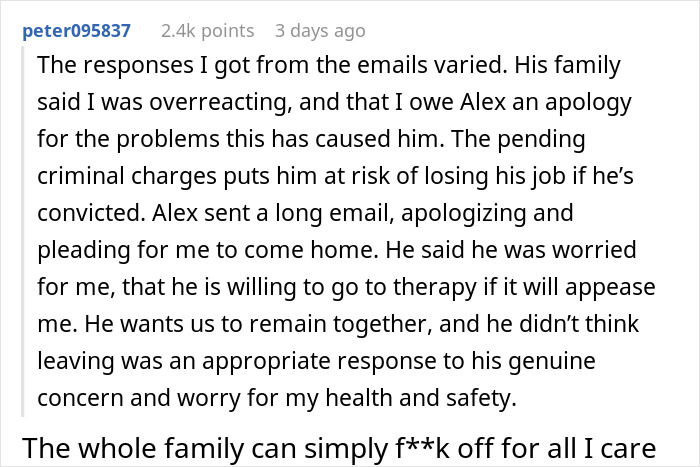


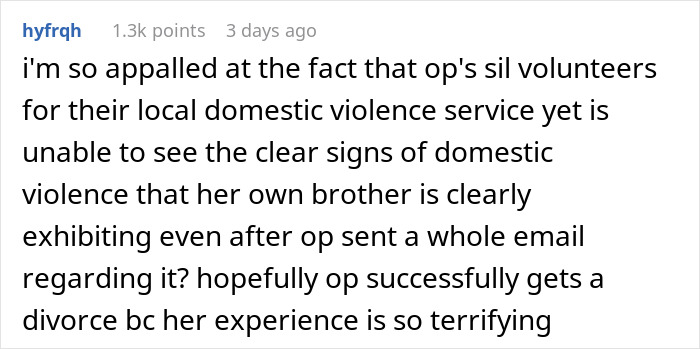














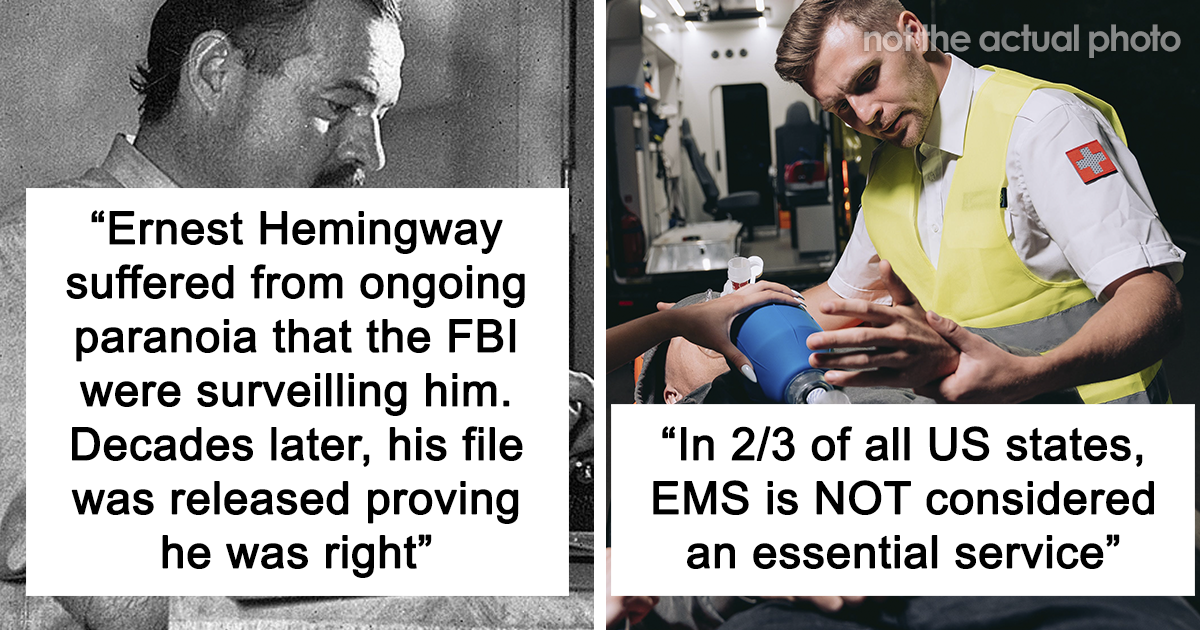









 English (US) ·
English (US) ·